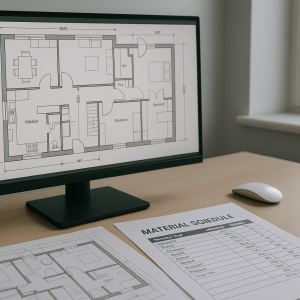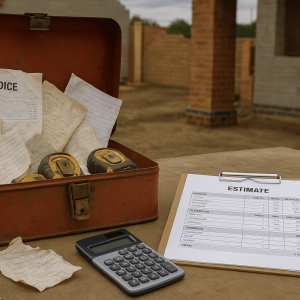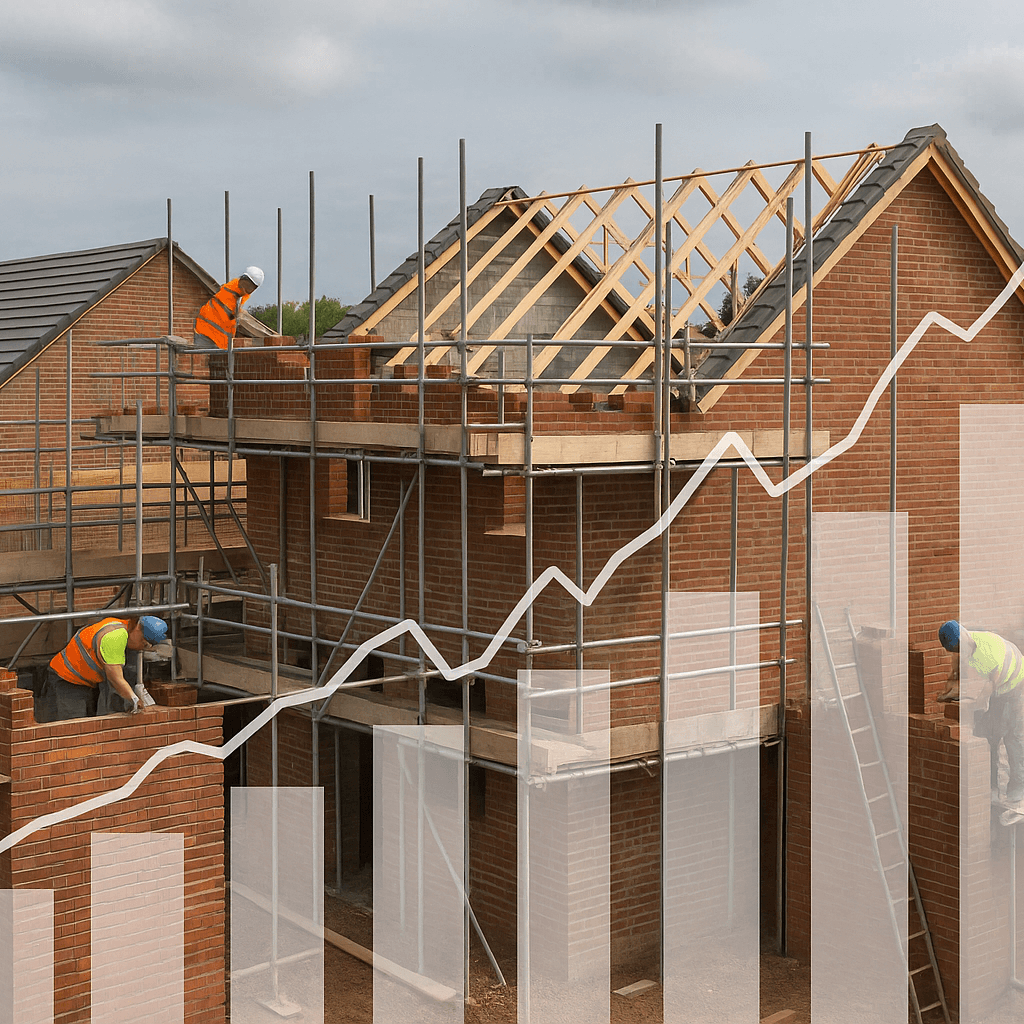In the competitive world of construction, accurate estimates are crucial for success. Whether you’re a homeowner planning a renovation or a contractor bidding on a project, understanding construction estimates is essential. This comprehensive guide will walk you through the importance of accurate construction estimates, the key components, steps to obtain an estimate, analyzing the estimate, negotiating, and finalizing the estimate. By the end, you’ll have all the knowledge you need to navigate the world of construction estimates confidently.
Understanding Construction Estimates
Construction estimates serve as a blueprint for any construction project. They provide a detailed breakdown of the costs, materials, and timeframes required to complete the project. An accurate estimate helps both builders and clients to plan and budget effectively.
When it comes to construction estimates, accuracy is key. It is crucial for both the builder and the client to have a clear understanding of the costs involved in the project. A well-prepared estimate not only helps in planning and budgeting but also serves as a reference point throughout the construction process.
The Importance of Accurate Construction Estimates
Construction estimators play a vital role in the success of a project. Their expertise enables them to determine accurate costs, factor in variables, and predict potential challenges. Accurate estimates reduce the risk of unexpected costs and delays, ensuring that projects stay on track.
One of the main reasons why accurate construction estimates are important is that they help in avoiding cost overruns. By carefully analyzing the project requirements and considering all the necessary factors, estimators can provide a realistic estimate that takes into account any potential changes or unforeseen circumstances that may arise during construction.
Another crucial aspect of accurate construction estimates is that they help in securing financing for the project. Lenders and investors rely on these estimates to assess the feasibility and profitability of a construction project. A well-prepared estimate that demonstrates a thorough understanding of the costs involved can significantly increase the chances of obtaining the necessary funding.
Key Components of a Construction Estimate
A construction estimate consists of several elements. These include material costs, labor costs, equipment costs, permits, insurance, and any additional expenses. Each item is carefully calculated to provide a comprehensive estimate.
Material costs are one of the major components of a construction estimate. This includes the cost of all the materials required for the project, such as lumber, concrete, steel, and electrical components. Estimators take into account the quantity of each material needed and the current market prices to arrive at an accurate cost estimate.
Labor costs are another crucial aspect of a construction estimate. This includes the wages of all the workers involved in the project, including carpenters, plumbers, electricians, and other skilled laborers. Estimators consider factors such as the number of hours required for each task and the prevailing wage rates to calculate the labor costs.
Equipment costs are also taken into account when preparing a construction estimate. This includes the cost of renting or purchasing any specialized equipment or machinery needed for the project, such as cranes, excavators, or concrete mixers. Estimators consider factors such as the duration of equipment usage and any maintenance or operating costs to determine the equipment costs.
Permits and insurance are additional expenses that are included in a construction estimate. These costs cover the necessary permits and licenses required for the project, as well as insurance coverage to protect against any potential risks or liabilities. Estimators factor in the specific requirements and regulations of the project location to calculate these costs accurately.
In conclusion, accurate construction estimates are essential for successful project planning and budgeting. They help in avoiding cost overruns, securing financing, and ensuring that projects stay on track. By considering all the key components, such as material costs, labor costs, equipment costs, permits, and insurance, estimators provide a comprehensive breakdown of the expenses involved in a construction project.
Steps to Obtain a Construction Estimate
When it comes to obtaining a construction estimate, following a systematic approach is critical. This section will guide you through the necessary steps to ensure you receive reliable estimates.
Identifying Your Construction Needs
Before requesting estimates, it’s important to have a clear understanding of your construction needs. Outline your project goals, desired outcomes, and any specific requirements. This helps potential contractors understand your vision and provide accurate estimates.
When identifying your construction needs, consider factors such as the size and scope of the project, the desired timeline, and any unique features or materials you want to incorporate. For example, if you’re planning to build a custom home, you may have specific design elements in mind, such as energy-efficient features or high-end finishes. Clearly defining your needs will help contractors assess the feasibility of your project and provide estimates that align with your goals.
Additionally, it’s important to consider any potential challenges or constraints that may impact the construction process. For instance, if you’re renovating an older building, there may be structural issues that need to be addressed. By identifying these needs upfront, you can communicate them to contractors and ensure that their estimates account for any necessary modifications or repairs.
Finding a Reliable Contractor
Choosing the right contractor is crucial to obtaining an accurate estimate. Look for reputable contractors with experience in your type of project. Ask for referrals, research online reviews, and interview potential contractors to assess their skills and professionalism.
When searching for a reliable contractor, consider factors such as their track record, industry certifications, and past project experience. It’s also important to evaluate their communication and collaboration skills, as effective communication is key to a successful construction project. By thoroughly vetting potential contractors, you can ensure that you’re working with professionals who are capable of delivering high-quality results.
Furthermore, don’t hesitate to ask for references from previous clients. Speaking with past clients can provide valuable insights into a contractor’s work ethic, reliability, and ability to meet deadlines. This firsthand feedback can help you make an informed decision and select a contractor who is best suited to your project.
Requesting an Estimate
Once you’ve identified your needs and selected a contractor, it’s time to request an estimate. Provide the contractor with detailed information about your project, including plans, specifications, and any relevant documents. This ensures that the estimate is tailored to your specific requirements.
When requesting an estimate, it’s essential to provide accurate and comprehensive information. This includes architectural drawings, engineering plans, material specifications, and any other relevant documentation. The more detailed your information, the more accurate the estimate will be.
In addition to the project details, it’s also important to discuss your budget with the contractor. By openly communicating your budget constraints, the contractor can provide estimates that align with your financial expectations. This transparency will help avoid any surprises or misunderstandings during the construction process.
Furthermore, consider requesting multiple estimates from different contractors. This allows you to compare prices, services, and timelines to ensure you’re getting the best value for your investment. However, be cautious of extremely low estimates, as they may indicate subpar craftsmanship or the use of low-quality materials.
Analyzing Your Construction Estimate
Once you’ve received the estimates, it’s time to analyze them. This section will guide you through the process of breaking down costs and evaluating the estimated timeframe.
Breaking Down the Costs
Thoroughly review the estimated costs provided by each contractor. Pay attention to material costs, labor costs, and any other expenses. Compare the estimates side by side to identify any significant differences or discrepancies. A detailed breakdown helps you make informed decisions about the budget and assess potential savings.
Evaluating the Timeframe
Consider the estimated timeframe for each project. Evaluate whether the project schedules align with your desired completion date. Factor in any potential delays or constraints that may affect the overall timeline. Understanding the projected time commitment helps you plan accordingly.
Negotiating Your Construction Estimate
Once you’ve analyzed the estimates, it may be necessary to negotiate with the contractors. This section provides tips for successful negotiation and highlights potential red flags to watch out for.
Tips for Successful Negotiation
Approach the negotiation with an open mind and a cooperative attitude. Clearly communicate your expectations and budget constraints. Consider any modifications or alternatives suggested by the contractors. Aim for a win-win situation where both parties benefit.
Red Flags to Watch Out For
During the negotiation process, keep an eye out for red flags. Contractors who consistently offer exceptionally low estimates may be cutting corners or using subpar materials. Conversely, extremely high estimates without adequate justification may indicate overcharging. Trust your instincts and choose contractors with transparent pricing and a proven track record.
Finalizing Your Construction Estimate
After negotiation, it’s time to finalize the construction estimate. This section will guide you through the process of reviewing the contract and preparing for the construction process.
Reviewing the Contract
Once you’ve selected a contractor and agreed on the estimate, carefully review the contract. Ensure that all the terms, costs, and specifications discussed during the negotiation are accurately reflected. Seek legal advice if necessary to protect your interests.
Preparing for the Construction Process
With the construction estimate finalized, it’s time to prepare for the construction process. Coordinate with the contractor to establish a timeline and discuss any necessary preparations. Clear communication and proper planning will help ensure a smooth and successful construction experience.
Construction estimators play a crucial role in helping builders and clients navigate the complexities of construction projects. Their expertise and attention to detail ensure that estimates are accurate, reducing the risk of unexpected costs and delays. By following the steps outlined in this guide and employing reliable contractors, you can obtain a construction estimate that aligns with your vision and budget. Take advantage of the benefits of estimating services, and embark on your construction journey with confidence!
Ready to take the next step in your construction project? At Cost Estimator, we specialize in providing detailed and accurate builders estimating services tailored to the UK construction industry. Our expertise encompasses the latest cost estimating practices, tools, and methodologies, ensuring that your project aligns with the unique nuances of the UK building sector. Let us help you avoid unexpected costs and delays with our comprehensive estimating services. Upload your plans today, and receive a personalized construction estimate that brings you one step closer to realizing your vision.











